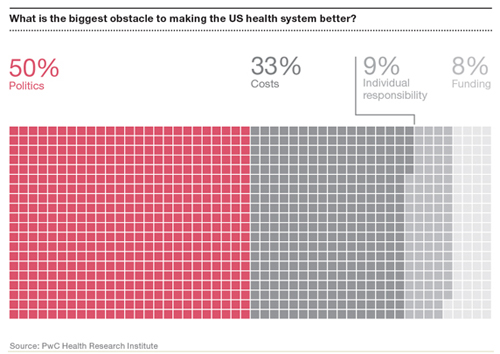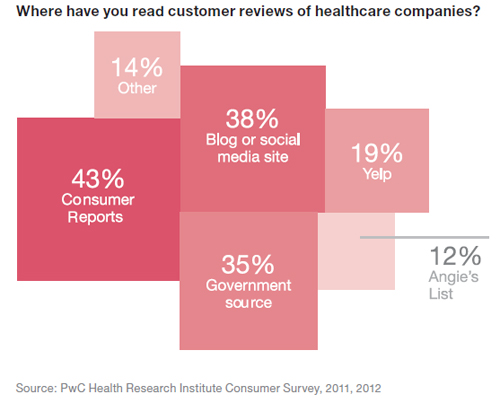It’s almost cliché to say that the American healthcare system is changing. But the reality is that the pace of care delivery transformation will speed up in 2013 with technology, consumerism and the Affordable Care Act. All these factors will merge on a sector that today represents one-fifth of the economy. To protect it we must have a clear picture of the future and how to better serve patients, who are demanding the speed, convenience, transparency and results they get in other service industries, such as banking.
It’s almost cliché to say that the American healthcare system is changing. But the reality is that the pace of care delivery transformation will speed up in 2013 with technology, consumerism and the Affordable Care Act. All these factors will merge on a sector that today represents one-fifth of the economy. To protect it we must have a clear picture of the future and how to better serve patients, who are demanding the speed, convenience, transparency and results they get in other service industries, such as banking.
50% of Americans think the biggest obstacle to improving our health system is politics. Participants identified cost as the second obstacle according to a survey by PricewaterhouseCoopers Health Research Institute in 2012.

![]()
More than a quarter of consumers have had physicians or other caregivers use email or text messages to communicate with them. Most were satisfied with the care delivery experience.
![]()
More than half of consumers have read reviews of healthcare providers online, with doctors and hospitals being the most viewed. 60% said that a hospital’s quality of care affects their healthcare decisions. This trend is heavily driven by younger health information seekers.

To learn more download this report from PricewaterhouseCoopers Health Research Institute.








